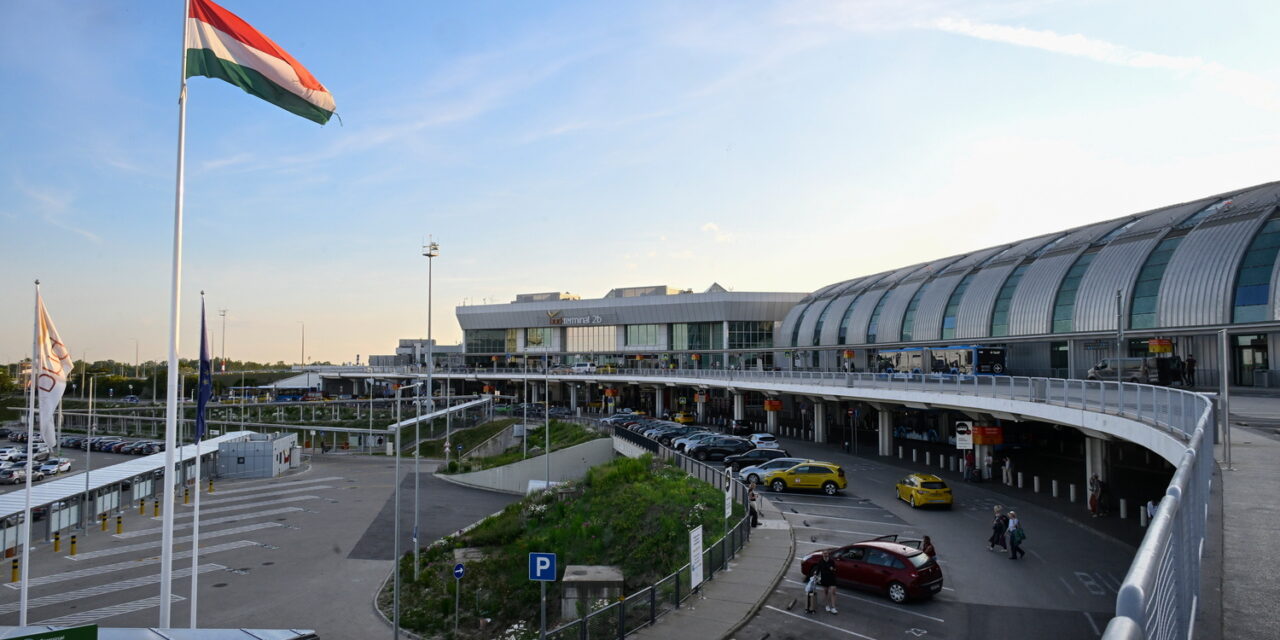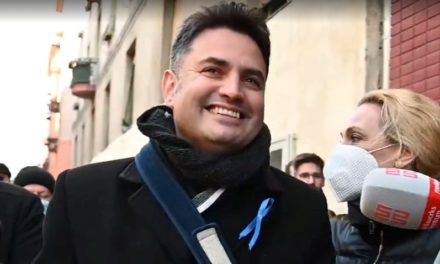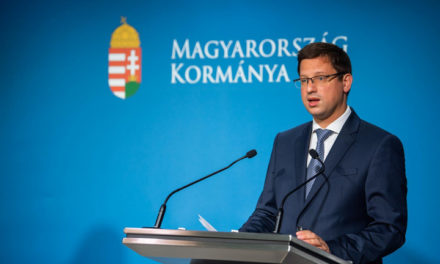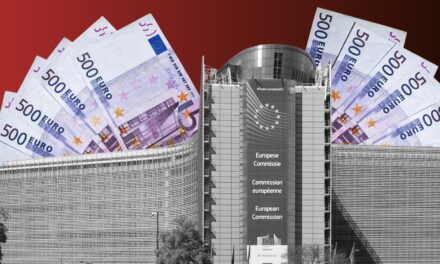We consider it important to carry out airport-related developments with the operator, this includes the triple terminal and other servers - this is how Márton Nagy announced that they have taken over the airport and that they want to make huge investments together with the VINCI Airports company.
Later, the Minister of National Economy also said that the extra profit tax affecting the airline will be phased out by the government from January 1st.
"I am very happy that I can now stand here on behalf of the Hungarian government and the state, as this means that we have bought this airport," announced the Minister of National Economy at the international press conference on Tuesday. Márton Nagy underlined:
the transaction was concluded, and the airport returned to national majority ownership, "with an operator who could not have chosen a better one."
On June 6th, the government announced that the state bought the Ferihegy airport. With this, the government conducted a historic transaction, the buyback being the largest deal of the period after the regime change. The purchase price was 3.1 billion euros - more than 1,200 billion forints - and the 1.44 billion euros loan taken out by the previous owners was extended with the successful agreement with the creditor consortium.
Márton Nagy promised improvements
The negotiations took place in two rounds on the part of Corvinus International Investment Zrt. and VINCI Airports. The deal was made with an international group of sellers made up of AviAlliance, GIC and CDPQ. On the other hand, an agreement was also reached with the circle of international creditors financing the airport to close the transaction. The purchase transaction also represents a record size in Central European terms. The buyback was an extremely complicated task. According to the agreement, the Hungarian State acquires an 80 percent ownership share in Budapest Airport Zrt., and the French co-investor VINCI acquires 20 percent.
On Tuesday, Márton Nagy stated that the state paid 2.8 billion euros and that the purchase price was shared proportionally with VINCI. Everyone paid the same amount for a share. Márton Nagy emphasized that a number of experts were brought in to help with the transaction, and a market-based transaction was carried out. A joint business plan was drawn up with the French company, and the airport was purchased with an EBIDA ratio of 16.5 percent.
The state will not operate the airport, it will be present as a strategic investor, the operation will be carried out by VINCI Airports.
"We entrusted the airport to them, the Hungarian state is not up to it," concluded Márton Nagy. It is important to point out that VINCI Airports operates more than 70 airports, and by 2030 they want to increase the number of passengers to twenty million people. At the same time, he also reminded that the Ferihegy airport is outstanding not only from the point of view of passengers, but also of goods traffic.
We consider it important to develop the airport with the operator. This includes the triple terminal and other servers
- then Márton Nagy stated that "the government's task now is to develop the infrastructure leading to this". This also includes expressway, railway and other infrastructures. "We need more terminals and we need to take people to and from the airport." The government has dealt with infrastructural issues several times, and according to Márton Nagy, more information will be provided about this later. However, according to Márton Nagy, "we have to start planning, because if the triple terminal is built and there is no development, we will not have achieved anything." He later announced:
the extra profit tax affecting airlines will be phased out from January 1, 2025.
At the end of May, the report of Budapest Airport Zrt. was published. Only tangible assets in the company are 508 million euros, the balance sheet total is slightly less than 2 billion euros. The company closed last year with net sales of 337.8 million euros, 20 percent higher than in 2022, with a profit after tax of 74 million euros (HUF 29 billion).
Márton Nagy also emphasized that the operation does not include the current delays. However, he explained in detail that Terminal 3 is expected to open its doors by 2032, "in order for traffic to handle this, the necessary infrastructures must be ready by then." The government can prepare the infrastructural plans in the next two months, roughly by autumn.
Financing issues can also be clarified, but according to Márton Nagy, it is not necessarily certain that the budget should be fully burdened with this. According to him, it is now possible to talk about the order of one billion euros. At the same time, the Hungarian state's primary concern is not for the airport to be profitable.
VINCI comes with great experience
Nicolas Notebaert, CEO of VINCI Airports, emphasized in his speech that Hungary is an open economic country and that the Ferihegy airport is important for this. "Thank you for the trust from the government that we could join and take part in this investment." According to him, the transaction was completed quickly and professionally and the teams "did a fantastic job".
Nicolas Notebaert highlighted that VINCI Airports is one of the largest infrastructure companies in the world, with a turnover of 5 billion euros and an annual investment level of 1 billion euros. They have 20 years of airport operating experience and operate worldwide.
We don't want to bring a lot of people here, but we want to work with the team here.
He later underlined that we want to develop the plans related to the developments together with the government. And we want to strengthen the use of the economic opportunities inherent in Hungary. Márton Nagy later touched on
the delays are partly due to the narrowing of our geographical area as a result of the Russian-Ukrainian war.
According to him, the use of airspace in Hungary is very low, which is why many flights prefer to use this airspace, and the combined effect of several other factors results in the delays experienced in recent days. HungaroControl Magyar Légiforgalmi Szolgálat Zrt. will come under the Ministry of National Economy on the first of August, and Márton Nagy therefore emphasized that he would like to implement a number of changes. Among other things, according to the head of the ministry, airspace should not be sold so cheaply.
Featured image: MTI/Szilárd Koszticsák













